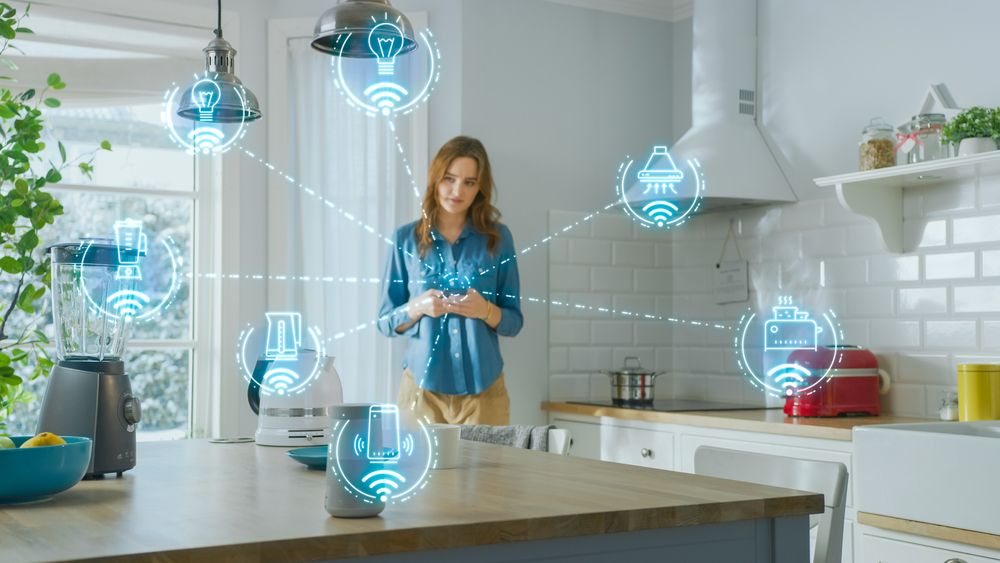
Understanding Smart Home Technology
In the contemporary era, the concept of a ‘smart home’ is no longer a futuristic vision, but a burgeoning reality for many homeowners around the globe. Smart home technology refers to a set of devices, appliances, and systems that interconnect through a network, typically the internet, enabling a homeowner to interact with various home features remotely or through automation. These devices encompass everything from lighting and climate control to entertainment systems and security apparatuses.
Smart home technology leverages sensors, software, and connectivity to facilitate unprecedented levels of control and convenience. The fundamental aim of these technologies is to enhance the efficiency of home operations and contribute to a more comfortable, secure, and energy-efficient living environment.
Evaluating the Benefits of Smart Homes
The allure of smart homes lies in their multifaceted benefits, which have been a driving force behind their adoption. One of the primary advantages is convenience. Smart home systems allow users to manage their home environments with simple voice commands or through intuitive smartphone apps, no matter where they are.
Enhanced security is another significant benefit, with smart locks, security cameras, and alarm systems that can be monitored and controlled remotely, providing homeowners with peace of mind. Energy efficiency is also a key factor, as smart thermostats and lighting systems optimize energy usage, reducing unnecessary waste and leading to potential cost savings on utility bills.
Accessibility is a further important aspect, particularly for the elderly or those with disabilities, as smart home technology can provide increased independence and comfort through voice-activated controls and automated routines.
Challenges and Considerations
Despite the numerous advantages of smart home technology, there are challenges and considerations that must be acknowledged. Privacy and security concerns top the list, with the potential for hacking and data breaches posing risks to the personal information of homeowners. The reliance on a stable internet connection and the compatibility between different devices and systems can also present obstacles in the seamless operation of smart home ecosystems.
The initial cost of smart home devices and the potential need for professional installation or maintenance can be a barrier for some, while the learning curve associated with new technology can deter others. Furthermore, with the rapid pace of technological advancement, obsolescence is a concern, as today’s cutting-edge devices may become outdated relatively quickly.
Smart Home Trends and Future Developments
The smart home industry is constantly evolving, driven by technological innovations and changing consumer demands. One of the key trends in this area is the integration of artificial intelligence (AI) and machine learning, which allows systems to adapt to the habits and preferences of users, creating a more personalized experience.
Another trend is the growing focus on interoperability, with industry players working towards creating standardized protocols that enable different devices and brands to work seamlessly together. The rise of the Internet of Things (IoT) has also expanded the potential for smart home devices, with even more household items becoming connected and smart.
Looking towards the future, we can expect to see further advancements in sensor technology, enhanced voice and gesture recognition capabilities, and an increase in the use of sustainable, energy-efficient materials and methods in smart home devices. The potential for smart home technology to integrate with smart city infrastructure is also a development that could lead to even more comprehensive control and efficiency in managing one’s living environment.
Making an Informed Purchase Decision
When considering the adoption of smart home technology, it’s essential to make an informed purchase decision. Homeowners should evaluate their specific needs and the value that smart home features can add to their lives. It is important to conduct thorough research on the different products available, taking into account not only the cost but also the reliability, user reviews, and after-sales support.
Compatibility is a crucial factor, as ensuring that new devices can communicate with existing ones is vital for creating a cohesive smart home system. Prospective buyers should also consider the ease of use and the level of technical expertise required to operate and maintain the system.
Additionally, with the concerns around privacy and security, it is advisable to invest in devices with robust security features and to practice good cybersecurity habits, such as regular software updates and the use of strong, unique passwords.
Smart home technology represents a significant shift in the way we interact with our living spaces, offering numerous benefits that can enhance daily life. While the convenience, security, and energy efficiency of smart homes are compelling, potential adopters must carefully consider the challenges and make informed decisions when integrating these technologies into their homes.
As the industry continues to evolve, with trends pointing towards greater intelligence, interconnectivity, and sustainability, the potential of smart homes seems boundless. However, keeping abreast of developments and maintaining a critical eye towards the implications for privacy and obsolescence will be essential.
Ultimately, the decision to create a smart home should be guided by a clear understanding of the technology, a thoughtful evaluation of its benefits and challenges, and a strategic approach to selecting devices that align with one’s lifestyle and values. With these considerations in mind, homeowners can confidently embrace the smart home revolution and craft living spaces that are not only connected but also responsive, efficient, and secure.
